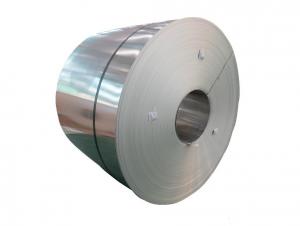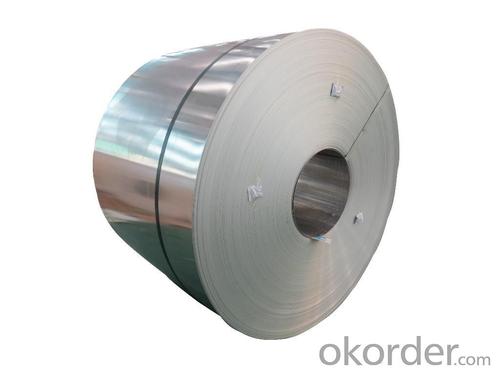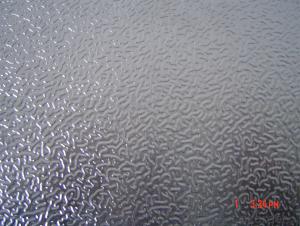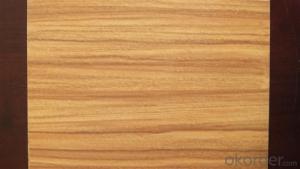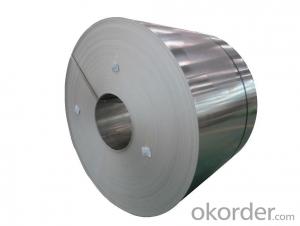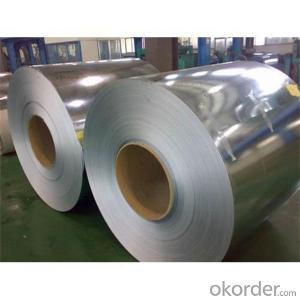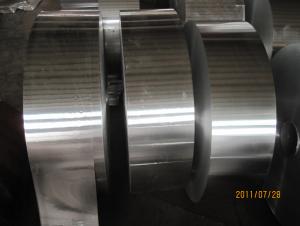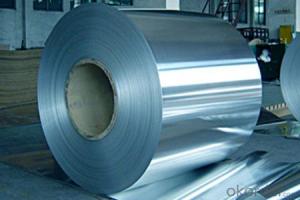Flat Aluminum Coil - Hot Rolled Aluminium Strip in Coils AA1050-F
- Loading Port:
- China Main Port
- Payment Terms:
- TT or LC
- Min Order Qty:
- -
- Supply Capability:
- -
OKorder Service Pledge
OKorder Financial Service
You Might Also Like
1.Structure of Product Description
2. Main features of the product
a.Competitive price---We have our own aluminium mills, and we can provide competitive price than other small suppliers.
b.Professional after-sale service---We have more than 20 years exportation experience. So you do not worry about the after-sales service.
3. Image 4. Product Specification
c.Fast delivery time---Our usual delivery time is about 30 days.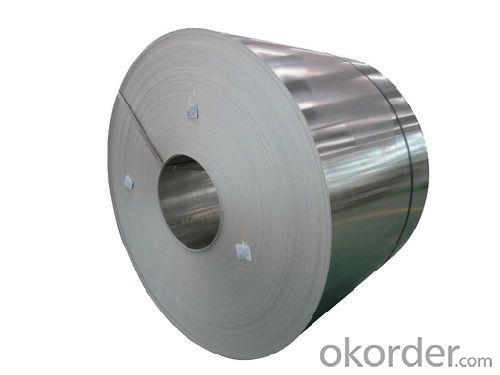
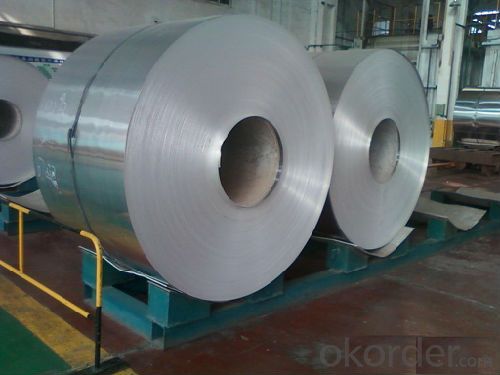
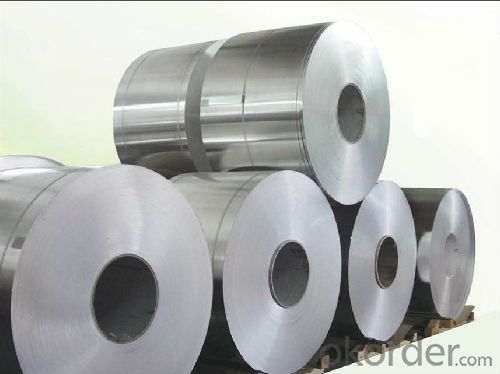
Alloy Temper Thickness Coil ID Coil Weight AA1050 F 3-8mm 610mm Min 5 tons
5.FAQ:
What is the quality standard?
---Usually our standard is GB3880-2006
What is the largest width?
---It is 2300mm
What is the MOQ?
---Usually we can accept 80 tons.
- Q: Can aluminum coils be used for pharmaceutical packaging?
- Certainly, pharmaceutical packaging can make use of aluminum coils. Aluminum is widely preferred for such purposes owing to its numerous advantageous properties. Notably, its lightweight nature, resistance to corrosion, and exceptional barrier properties render it exceptionally suitable for safeguarding pharmaceutical items against external elements like moisture, oxygen, and light. Moreover, aluminum coils can be conveniently fashioned into various shapes and sizes, thereby offering flexibility to meet diverse packaging requirements. It is also worth mentioning that aluminum is both non-toxic and non-reactive, thereby guaranteeing the safety and overall quality of pharmaceutical products.
- Q: Can aluminum coils be used in cryogenic applications?
- Indeed, cryogenic applications can utilize aluminum coils. Highly regarded for its remarkable thermal conductivity, aluminum proves to be an appropriate substance for heat transfer in environments with low temperatures. Moreover, aluminum exhibits a minimal coefficient of thermal expansion, enabling it to endure the drastic temperature fluctuations inherent in cryogenic applications while avoiding notable alterations in dimensions. Nevertheless, it is important to acknowledge that aluminum coils might necessitate specific design or treatment to guarantee their resilience against exceedingly frigid temperatures and mitigate any potential concerns like brittleness or embrittlement.
- Q: Is it safe and effective to heat an aluminum coil using a microwave oven?
- <p>No, you should not use a microwave to heat an aluminum coil. Microwaves can cause aluminum to heat unevenly and potentially spark, which is dangerous. Aluminum is a good conductor of electricity and can reflect microwaves, leading to arcing and fire hazards. Always use microwave-safe materials when heating food or other substances in a microwave.</p>
- Q: What are the potential applications of stucco-embossed aluminum coils?
- Stucco-embossed aluminum coils offer a multitude of potential uses due to their distinct properties and attractive appearance. Here are some possible applications for stucco-embossed aluminum coils: 1. Construction: Stucco-embossed aluminum coils are commonly employed in the construction sector for cladding and roofing purposes. The textured pattern strengthens and enhances the durability of the aluminum, making it suitable for external applications. It can be utilized on both commercial and residential buildings to provide a visually pleasing and long-lasting finish. 2. Insulation: Stucco-embossed aluminum coils can also serve as insulation material. The textured surface increases the material's surface area, thereby improving its thermal conductivity. This makes it an excellent choice for applications where heat transfer needs to be regulated, such as HVAC systems or refrigeration units. 3. Appliances: The manufacturing of various appliances often incorporates stucco-embossed aluminum coils. The textured surface not only adds visual interest but also provides a robust and easy-to-clean finish. It can be used in the production of kitchen appliances like refrigerators, dishwashers, and ovens, as well as other household appliances like air conditioners or water heaters. 4. Transportation: Stucco-embossed aluminum coils also find applications in the transportation industry. The textured surface enhances traction, making it suitable for vehicle flooring and decking in buses, trains, and ships. It is also used for decorative purposes in the interior and exterior parts of automobiles, imparting a stylish and modern appearance. 5. Packaging: Stucco-embossed aluminum coils can be utilized in the packaging industry. The textured surface adds strength and rigidity to the material, making it ideal for manufacturing durable containers, trays, and packaging materials. It is suitable for food and beverage packaging, pharmaceutical packaging, and various other applications where a sturdy and visually appealing packaging solution is required. In conclusion, the uses for stucco-embossed aluminum coils are diverse and adaptable. From construction to insulation, appliances to transportation, and packaging to various other industries, stucco-embossed aluminum's unique properties and attractive appearance make it a popular choice for a wide range of applications.
- Q: how many chloride ions are present? how many chlorine ions are present? what is the mass in grams of one formula unit of aluminum chloride?
- Aluminum Chloride is simply AlCl3 So In each mole of AlCl3 there are 1 mol of Al 3 mol of Cl We know (from periodic table), 1 mol of Al weighs 26.98 g 1 mol of Cl weighs 35.47g so 1 mol of AlCl3 weighs 26.98g + 3x35.47g = 133.39 g sooo moles of AlCl3 = 37.2 g /133.39 g/mol = 0.279 mol in one mol of anything, there are 6.02 x 10 ^ 23 of that thing... so we have 0.279 mol x 6.02 x 10 ^ 23 molecules /mole = 1.68 x 10 ^ 23 And, we know one molecule of AlCl3 dissociates into one Al ion and 3 Cl ions sooo 1.68 x 10 ^ 23 AlCl3 ions dissociate into 1.68 x 10 ^ 23 Al ions so answer is 1.68 x 10 ^ 23 Al ions
- Q: This question asks about the suitability of aluminum coils for outdoor applications based on their weight and strength.
- <p>Yes, aluminum coils are lightweight and strong, making them suitable for outdoor use. Aluminum is known for its high strength-to-weight ratio, which means it can withstand significant stress without adding much weight. It also has excellent corrosion resistance, which is crucial for outdoor applications where exposure to weather elements can lead to degradation. Additionally, aluminum's malleability allows it to be easily shaped and formed into various configurations for different outdoor structures and applications. Its light weight also reduces the load on structures, which can be an advantage in many construction scenarios.</p>
- Q: Is it possible to utilize aluminum coils in the process of water treatment?
- <p>Yes, aluminum coils can be used for water treatment. They are often used in processes such as coagulation and flocculation, where aluminum salts are added to the water to help remove suspended particles and impurities. The aluminum ions react with the particles in the water to form larger, heavier particles that can be more easily settled or filtered out. Additionally, aluminum coils can be part of an electrode system in electrocoagulation processes, where an electric current is used to treat water by generating aluminum ions at the anode. This method is effective for removing various contaminants, including heavy metals, bacteria, and organic compounds.</p>
- Q: Is it safe for individuals to handle aluminum coils?
- <p>Aluminum coils are generally safe to handle under normal conditions. They do not emit harmful radiation or toxic fumes. However, it's important to take precautions to avoid injury from sharp edges or heavy weight. Always use appropriate lifting equipment or assistance when handling heavy coils. Additionally, wear protective gloves to prevent cuts and ensure good housekeeping to avoid tripping hazards. In case of skin contact with certain aluminum processing fluids, it's advisable to wash the affected area immediately with soap and water.</p>
- Q: This question asks for the method to measure the dimensions of an aluminum coil.
- <p>To measure the size of an aluminum coil, you'll need to measure its diameter, width, and thickness. Use a tape measure or a caliper to measure the coil's diameter and width. For the thickness, a micrometer or a coil thickness gauge can be used. Ensure the coil is laid flat and measure at several points to get an average thickness. If the coil is wound, you may need to unroll it partially to take accurate measurements. Always follow the manufacturer's guidelines for your specific measuring tools to ensure accuracy.</p>
- Q: Are aluminum coils suitable for food storage containers?
- Yes, aluminum coils are suitable for food storage containers. Aluminum is a popular material choice for food storage containers due to its various advantageous properties. Firstly, aluminum is lightweight, making it easy to handle and transport. Additionally, aluminum has excellent thermal conductivity, which means it can cool down or heat up quickly, making it ideal for both hot and cold food storage. Moreover, aluminum is resistant to corrosion and does not react with acidic or alkaline foods, ensuring that the taste and quality of the food remain intact. Furthermore, aluminum is a sustainable and recyclable material, making it environmentally friendly. However, it is important to note that aluminum containers should be lined with a food-grade coating to prevent any potential reaction between the metal and the food, especially acidic foods. Overall, aluminum coils are a suitable choice for food storage containers due to their lightweight nature, thermal conductivity, corrosion resistance, and recyclability.
Send your message to us
Flat Aluminum Coil - Hot Rolled Aluminium Strip in Coils AA1050-F
- Loading Port:
- China Main Port
- Payment Terms:
- TT or LC
- Min Order Qty:
- -
- Supply Capability:
- -
OKorder Service Pledge
OKorder Financial Service
Similar products
Hot products
Hot Searches
Related keywords
